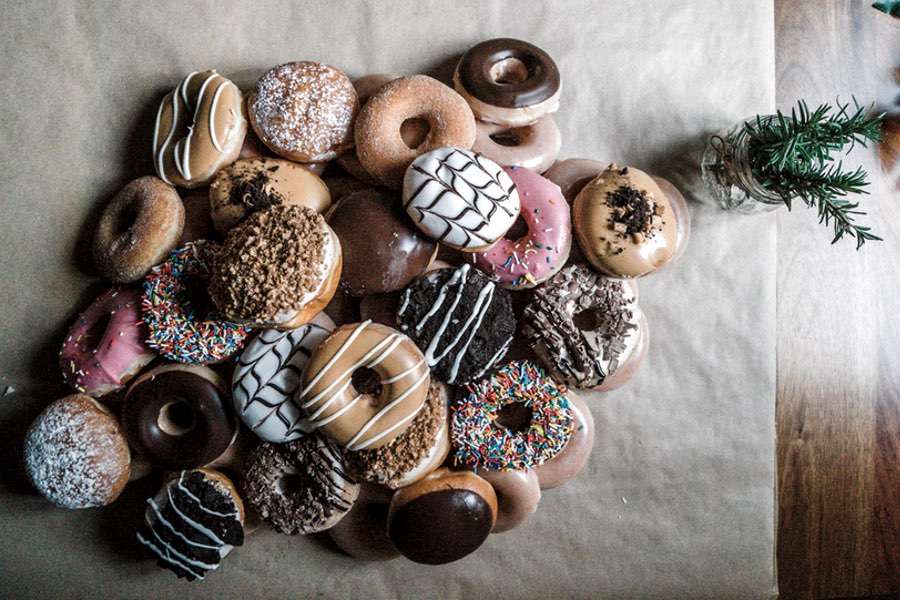
Holiday lights are beautiful and quality time with friends and loved ones is an invaluable gift. But the holidays can also present us with a wide array of challenges. For many people this is the time of year where our emotional resilience and stress management skills are put to the test.
So many of us have a complicated relationship with food and there is undeniable temptation in the variety of festive deliciousness that we encounter this time of year.
When we turn to food for emotional support, we can easily fall into unhealthy patterns such as being overly restricted and/or overly indulgent. Feelings like shame, guilt and self-disgust can become overwhelming. Even if it isn’t a challenge at any other time of year, if left unchecked, symptoms of conditions like Binge Eating Disorder, Bulimia Nervosa and Anorexia Nervosa can flare up around the holidays.*
If you’re seeking a healthy, balanced relationship with food during the holiday season, I advise you start by pursuing a healthy relationship with your body and with yourself. Here are a few practices you may want to add into your self-care routine… or begin a self-care routine with…
[*These are serious conditions for which this post is in no way intending to provide medical advice. If you would like more information on eating disorders you may find a helpful resource at the National Eating Disorders Association or resources from National Institute of Mental Health . Please seek help if you feel you need support.]
Step 1. Master Your Mindset When Choosing What and How to Eat
My first successful step in working with the downward spiral of my own unhealthy eating patterns was learning to manage my negative self-talk. Which meant I must find compassion for myself in vulnerable situations.
Self-compassion can be challenging to muster. So when it feels hard to love myself, I just make sure all of my self-messaging passes the “Would it be cool if someone said this to a loved one?” test.
Here are some examples:
- If my daughter were enticed by delicious things offered at a holiday feast, I wouldn’t want someone to shame her. I would want them to encourage her to focus on nourishing foods, with one or two treats. I would want them to teach her self-trust through helping her tune in to her inner cues so she can stop eating when she begins to feel full or satisfied.
- If my aunt veered off her health-plan, gulped down a slice of every single kind of pie, then went back for more, I’d be upset if someone told her that she may as well give up altogether and eat the whole tray of cookies too. Instead I would want them to invite her to find other enjoyable ways to engage her senses such as going for a walk, finding a quiet place to sit, or connecting with a loved one.
- I would be concerned if someone advised my best friend to go the entire holiday season without indulging once, because she “doesn’t deserve it”. I would want them to encourage her to choose an indulgence if she wants. To look forward to it, enjoy every bite, and then move on with a palate cleanser like an herbal tea or a few breaths of fresh air.
Intentionally framing my mindset, and choosing to view myself through a more loving lens, has made a world of difference during the holidays.
I strive to be reasonable, compassionate and empowering in the ways that I speak to myself and others. These are the phrases I like to regularly repeat that help keep me grounded in my intentions:
- “We are all deserving of patience, kindness and love.”
- “I seek a healthy balance between indulgence and self-control.”
- “I am strong, centered, and tuned-in to my body.”
I’d love to know what yours are! Please share in the comments below of you wish 🙂
Step 2: Heighten Your Senses to the Many Messages from Your Gut
A challenging relationship to food often comes with difficulty sensing internal states like hunger and fullness. But our guts have a nervous system of their own called the enteric nervous system. It’s well worth learning to tune in to the gut in a positive way, in order to befriend its intelligence and make better decisions.
From Science Magazine’s Your gut is directly connected to your brain, by a newly discovered neuron circuit, by Emily Underwood):
“The human gut is lined with more than 100 million nerve cells—it’s practically a brain unto itself. And indeed, the gut actually talks to the brain, releasing hormones into the bloodstream that, over the course of about 10 minutes, tell us how hungry it is, or that we shouldn’t have eaten an entire pizza.”
But recent studies show that communication from gut to brain is actually much faster than that previously known 10-minute window.
“A new study reveals the gut has a much more direct connection to the brain through a neural circuit that allows it to transmit signals in mere seconds…”
This sounds rather crude, but bear with me as the science is quite fascinating. Neuroscientist Diego Bohórquez conducted a study with colleagues where they injected a fluorescent rabies virus into the colons of mice. This virus is transmitted through neuronal synapses. Then when the enteroendocrine cells did light up, as the scientists suspected, their partners were vagal nerves.
“Enteroendocrine cells reached out to vagal neurons and formed synaptic connections with each other. The cells even gushed out glutamate, a neurotransmitter involved in smell and taste, which the vagal neurons picked up on within 100 milliseconds—faster than an eyeblink.”
So what does this mean when you’re confronted with mounds of holiday cookies, cakes and pies? Well, that vagal nerve goes straight to your brain stem. So if you can attune to this lightening-fast communication between gut and brain, you can make clearer choices for yourself that are genuinely aligned with your body’s wants and needs.
The following practices can help to stimulate relaxation, build core strength and improve digestion. Plus these practices can also strengthen your sense of interoception–which is the ability to sense yourself from the inside out.
As you refine this sense, you can more easily evaluate your internal barometers and differentiate hunger from thirst from exhaustion from emotion. You can learn to tend to your own needs with greater accuracy.
Practice Abdominal Massage
My suggestion is to use the Coregeous® ball frequently to massage the muscles of the trunk. Stimulation of the vagus nerve in this way can help to trigger a state of parasympathetic dominance, from which this subtle sensing is possible.
Practice Intercostal Abdominal Crunches
In this core stretch/strengthening exercise you will practice engaging your intrinsic core musculature in a way that generates stability, suppleness and inner support. While contracting your abdominal muscles both concentrically (muscle shortening) and eccentrically (muscle lengthening) you will “wake up” and tune in to your center deeply.
Doing these practices and tuning in to your gut before a cocktail (or cookie) hour can help you find the line between mindfully enjoying the delectable indulgences you’ve looked forward to all year, and mindlessly shoveling hors d’oeuvres into your face because of a sensation you aren’t quite able to label yet…then continuing to do so until you’re uncomfortably full of regret… and hors d’oeuvres.
Step 3. Move Your Body to Enjoy Your Body

My personal favorites:
- Walk outside and appreciate nature
- Ride your bike around the block
- Go play at the gym
- Walk a frisky dog
- Babysit a toddler
- Take a movement class
- Have a whole house pajama dance party before bed
Make a list of things you enjoy, that get the blood pumping and the endorphins flowing, and do a few of them everyday regardless of recent or pending calorie consumption.
What’s on your list of movements you love? Inspire me in the comments below!
Ultimately, you cannot entirely control the circumstances (or the cinnamon buns) around you during the holidays, but you can control the way you treat yourself in their midst. Be reasonable in your self-expectations, and take time to reflect without judgment on how you feel after the decisions you make each day.
Tomorrow brings a fresh start to re-explore your relationship with yourself, with your body, with each other, and with the many ways that you are nourished.
Be compassionate with yourself, respect your gut sensations, and take time to participate in the movements that bring you joy. Stay tuned in and respect your own boundaries. The more we engage in these practices regularly throughout the year, the easier it will be to continue them throughout the holiday season. Here’s wishing you a joyous holiday, and a healthful new year!
Related Article: When A Glass of Wine Isn’t Enough: The Physiology of Deep Relaxation (Video)
Learn more about our Therapy Ball Products and Programs
Interested in video and blog content targeted to your interests?





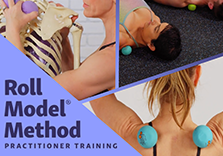




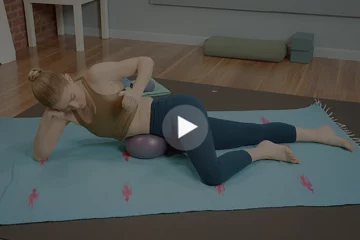
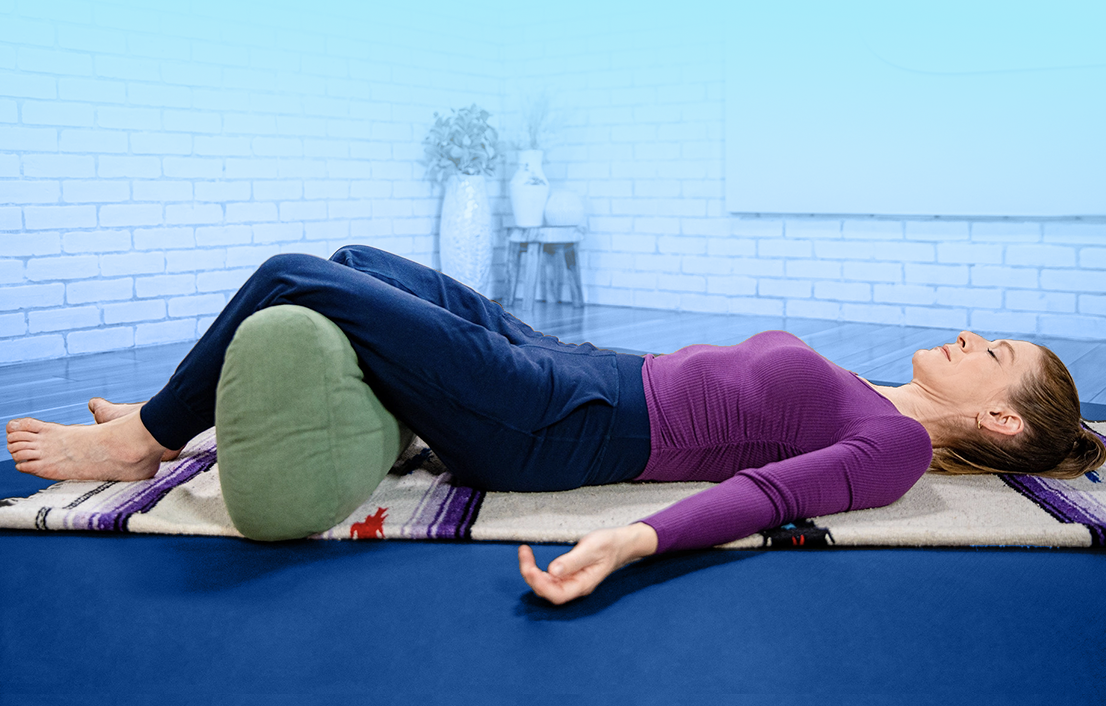
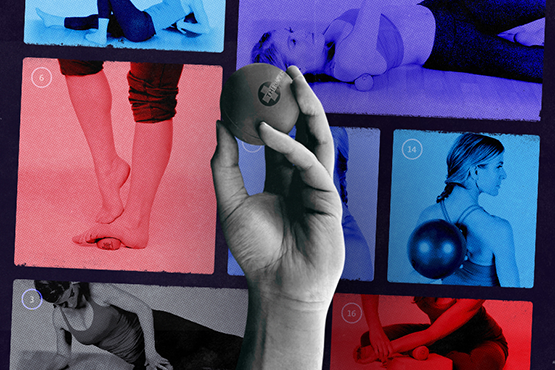
This is such a helpful reminder during the holiday season when it’s so easy to overdo it with food. I’ve found that adding gut massage to my routine has been a game-changer for supporting digestion and easing discomfort after heavy meals. Using a soft massage ball, like the coregeous ball, has helped me not only with bloating but also with staying more in tune with my body’s signals.
Wow, I really love and feel that “loved one test.” This offers such valuable perspective — and hopefully shifts us into that softer, kinder, more loving inner self. Will definitely be sharing this blog post with my community. This time of year is challenging for many, myself included! (PS: LOVE reading more about the gut-brain connection, enteric nervous system!)
Very interesting and useful article. I have difficulties in managing my weight and these leads are appreciated. Thank you
I’m not going to lie…I clicked on this article because the donuts looked delish 🙂 I am an avid gut roller and can tell a difference when I don’t get to roll. I’ve never flipped it around and stretched the intercostals. I will have to try this out the next time I roll. It totally makes sense to stretch in the opposing way. Thank you for the support and understanding temptation!
It’s very hard to make good food choices during the holidays, it’s a good advice! Balance is a solution!
I love abdominal massage, it’s very effective!
Knowing science of our body, I got understand more about myself and having compassion toward me, how I’ am made of nerve bundle.
The thanks giving day is coming soon, I will try this.
I love this article! Since I work on balance in my relationship with food, your suggestions are helpful. I exercise, run, do yoga and the only left piece that I am not satisfy with is food. The only piece and the most important piece. Thank you for the extra knowledge I can digest and use. The video is helpful also.
It’s always hard to keep a balanced relationship with food during the holiday season, thanks for your suggestions that we should master the mindset choosing what and how to eat first, then heighten the senses to messages from the gut, and finally could move our body to enjoy it.
The relationship with the gut and the CNS is fascinating. Again something I have not thought about is another important application of rolling to effect the gut and surrounding tissues. Also the important of movement, get out and take a long walk during these wonderful holiday seasons.
I love this article for subconsciously bringing up something that is a struggle for many, not just throughout the holidays- a strained relationship with food. We are always trying to fill the difficult voids in life with food and then feel guilty choosing that option instead of the gym, or extra glasses of water, or meditation. I started to think of food strictly as fuel for my body- what energy did I put out that day and how much do I feel comfortable eating to replenish what I used. On a day with more movement, I will eat a bit more and on days (like while in a course) and I don’t get as much movement in I will eat a bit less. Not always do I make the most “whole” or healthy choices, but depriving the body just leaves more space for disappointment. It is a balancing act to learn self control and self love for sure to fully commit into a healthy relationship with what goes into your body as fuel.
Really keying in and listening to your body’s physiology, interoception, is quite a fascinating enterprise. You may want something that is not readily available. The food industry is based on creating a desire for a product. Packaging and ‘eye candy’ are there to make you buy to benefit them. However, you may find that you gravitate to a baked sweet potato, asparagus, or hummus and stuffed grape leaves, a dessert of watermelon spears cold red grapes or a pear. It’s a boost to your psyche when you treat your cells to pure, real food, not what the ‘industry’ is selling.
I like your suggestions of opting for other positive rewards. Often when I think I am hungry, I simply need to drink water, and then the “hunger” goes away.
As someone with weakness to chocolate and bread I can relate to what is written! I will try to make better food choices, even under stress
I’m not clear how stimulating the vagus nerve through ball/gut work effects food cravings. But perhaps you are suggesting that slowing down and tuning in more mindfully to the body allows us to choose more mindfully, rather than reflexively.